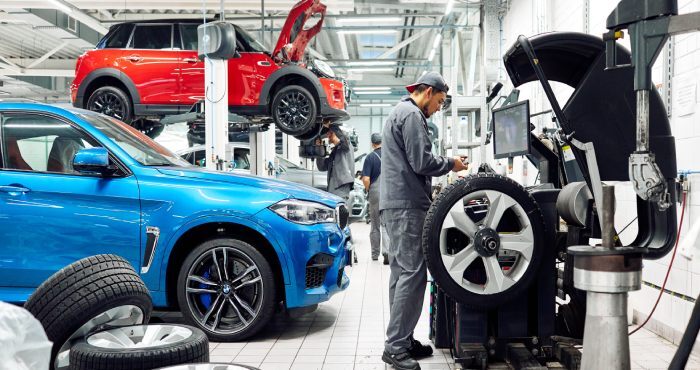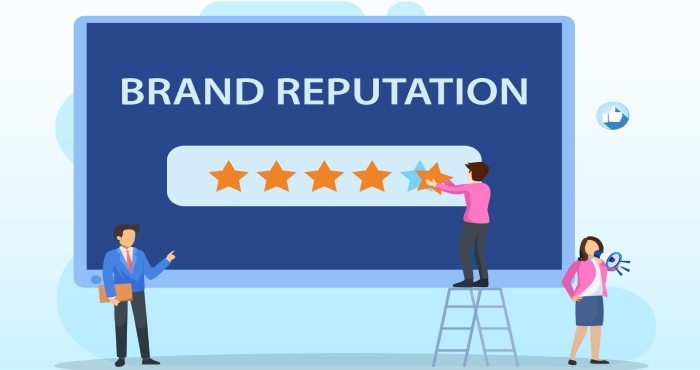Acquiring a new or certified pre-owned car is a significant financial investment. While most vehicle purchases go smoothly, some buyers face ongoing problems with their automobiles. To protect consumers from vehicles that consistently fail to meet quality and safety standards, many states, including California, have established Lemon Laws.
Nonetheless, dealerships vary in their approach to Lemon Law claims; some readily comply with these regulations, while others may challenge, postpone, or reject such claims. To grasp the reasons behind these differing responses, it is essential to examine the legal, financial, and operational elements that affect dealership practices.
Understanding Lemon Law Basics
Lemon Laws are regulations that vary by state, aimed at safeguarding consumers who buy vehicles with significant defects that affect their safety, value, or functionality. In California, the Song-Beverly Consumer Warranty Act regulates these Lemon Law claims. Here are the main points:
- Eligibility: To qualify, the vehicle must have a significant defect that falls under the manufacturer’s warranty.
- Repair Attempts: Manufacturers or dealerships are typically allowed a reasonable number of opportunities to rectify the issue. In California, “reasonable” is usually interpreted as two or more attempts for major safety defects and four or more attempts for less severe problems.
- Time Frame: Defects should generally be identified within a certain time frame after purchase or a specified mileage limit.
- Resolution Options: If the repairs do not resolve the issue, consumers can opt for either a replacement vehicle or a refund, which may include reimbursement for additional costs such as towing or rental cars.
While these laws are straightforward, the responses from dealerships can differ significantly.
Factors That Make Some Dealerships More Likely to Honor Lemon Law
Several key factors influence whether a dealership is likely to comply promptly and fairly with Lemon Law claims.
Reputation of Dealerships and Brand Compliance
Certain dealerships have established a solid reputation for exceptional customer service and adherence to brand standards. Manufacturers often mandate that these dealerships uphold strict criteria, including following warranty regulations and Lemon Law guidelines. A dealership that prioritizes its reputation understands that addressing Lemon Law claims:
- Fosters trust among customers.
- Promotes repeat clientele.
- Diminishes negative feedback and public grievances.
In contrast, dealerships with less favorable reputations might feel less urgency to respond promptly, banking on the possibility that some customers will not seek legal recourse.
Support from Manufacturers and Their Policies
Dealerships function under franchise agreements with car manufacturers, which typically outline the procedures for managing warranties and Lemon Law claims. Those dealerships that enjoy robust support from manufacturers — through clear instructions and efficient reimbursement methods — are more inclined to fulfill Lemon Law claims. Manufacturers may offer:
- Specialized personnel for warranty claims.
- Efficient systems for vehicle buybacks or exchanges.
- Legal aid for resolving disputes.
Dealerships lacking sufficient manufacturer backing or having stricter internal protocols may be slower or less willing to process claims.
Financial Implications
Addressing Lemon Law claims can incur significant costs. When a dealership repurchases or replaces a faulty vehicle, it faces considerable financial burdens. Dealerships with solid financial footing are generally more open to absorbing these expenses, particularly if doing so helps avert damage to their reputation or potential legal issues. Conversely, smaller dealerships or those operating on thin profit margins may view Lemon Law claims as a risk to their immediate revenue.
Knowledge and Experience with Lemon Law
Staff members at dealerships who possess a strong understanding of Lemon Law and its associated legal responsibilities tend to manage claims more effectively. Seasoned service managers and sales personnel know:
- The correct way to document vehicle defects.
- When it’s necessary to escalate issues to the manufacturer.
- How to engage with customers constructively to resolve conflicts.
On the other hand, dealerships with inexperienced staff or high turnover rates may mishandle claims, resulting in customer frustration and delays.
Ethical Standards and Corporate Culture
The corporate culture within a dealership significantly influences its handling of Lemon Law matters. Dealerships that emphasize ethical practices see compliance as a fundamental duty rather than merely a legal formality. They usually:
- Respond swiftly to customer complaints.
- Steer clear of unnecessary conflicts.
- Foster open communication with clients.
In contrast, dealerships that prioritize short-term sales and profits may perceive Lemon Law claims as hindrances instead of opportunities to showcase their integrity.
Why Some Dealerships Resist Lemon Law Claims
Expense Management
Addressing Lemon Law claims can incur significant costs, prompting some dealerships to adopt strategies to minimize their financial outlay. They might opt for temporary fixes instead of full vehicle replacements, extend the duration of the claims process, or offer lower reimbursements for rental cars and towing services. While these measures may provide short-term savings, they frequently result in increased legal fees and harm the dealership’s reputation in the long run.
Concerns Over Legal Liability
Certain dealerships are apprehensive that swiftly resolving claims could establish a precedent or lead to an uptick in lawsuits. They may contest the existence of a defect, argue that the customer did not adhere to proper protocols, or propose settlements that fall short of the legal requirements. This cautious stance is intended to mitigate legal exposure but can result in prolonged disputes and customer dissatisfaction.
Communication Gaps or Insufficient Knowledge
Resistance from dealerships isn’t always a deliberate choice; often, it stems from a lack of experience or misinformation among staff. They might misinterpret warranty terms, neglect to adequately document repair efforts, or overlook important deadlines. Such errors can pose challenges for customers, even at dealerships that typically adhere to Lemon Law standards.
Stock and Operational Limitations
Dealerships may postpone fulfilling Lemon Law claims due to insufficient inventory of appropriate replacement vehicles. This situation can lead to requests for customers to wait several weeks for a suitable car, causing frustration. Likewise, repair facilities with overloaded service departments may delay essential repairs, exacerbating the issue further.
How Consumers Can Identify Dealerships Likely to Honor Lemon Law
Identifying which dealerships are more inclined to support Lemon Law claims can help save time, alleviate stress, and enhance the likelihood of achieving a fair outcome. A practical approach is to investigate customer feedback on sites like Google, Yelp, or specific dealership review platforms. Look for trends that suggest timely and just resolutions, attentive customer service, and clear communication, as these factors typically indicate a dealership’s dependability in managing Lemon Law issues.
Another effective tactic is to assess the reputation of the manufacturer. Dealerships affiliated with brands known for stringent customer service policies — particularly luxury or premium brands — tend to be more compliant. Such dealerships are motivated to adhere closely to Lemon Law protocols to safeguard the brand’s reputation, making them more apt to address claims swiftly and professionally.
Consumers can also gather useful information by posing direct questions during the buying or servicing process, such as how the dealership approaches Lemon Law claims or examples of previous outcomes. Honest and straightforward answers are generally encouraging. Furthermore, consulting a knowledgeable Lemon Law attorney can provide valuable insights, as these legal professionals often know which dealerships consistently honor claims and can direct consumers toward those more likely to handle their cases fairly.
Steps to Increase the Likelihood of a Successful Lemon Law Claim
Even when a dealership is generally cooperative, following a careful approach helps ensure the claim is resolved smoothly.
- Keep Thorough Records: Maintain comprehensive documentation of repair efforts, descriptions of issues, correspondence with the dealership or manufacturer, as well as invoices for towing, rentals, or repairs. Proper record-keeping is crucial in case disagreements arise or legal proceedings are required.
- Adhere to Manufacturer Protocols: Following the warranty guidelines and promptly reporting any defects enhances your claim. Manufacturers typically have specific deadlines, and any delays can complicate potential legal solutions.
- Communicate Respectfully: Using a respectful and professional tone fosters better cooperation. Steering clear of aggression and clearly stating the facts helps dealerships recognize the situation as valid and manageable.
- Consider Mediation if Necessary: Certain states, like California, provide Lemon Law arbitration or mediation options. These avenues assist consumers in settling disputes without resorting to court, often leading to quicker resolutions.
The Role of Attorneys in Lemon Law Cases
When a dealership is uncooperative, having legal assistance can create a more equitable situation. Lemon Law lawyers:
- Assess the validity of the case.
- Guide clients on necessary paperwork.
- Facilitate negotiations for settlements or vehicle replacements.
- Advocate for clients in mediation or court if required.
Often, dealerships are more inclined to engage constructively when they see that a client has legal representation, as it indicates a serious approach and an understanding of legal matters.
Responses to Lemon Law claims can vary significantly among dealerships. Those with a good reputation, knowledgeable personnel, and robust ties to manufacturers tend to address claims quickly. In contrast, dealerships prioritizing immediate profits might procrastinate or push back against claims. It’s crucial for consumers to conduct thorough research, keep detailed records of any problems, and be aware of their legal rights.
Engaging San Diego Lemon Law lawyers can help you navigate the process, ensuring you receive a fair replacement or refund for your defective vehicle while protecting your rights and giving you peace of mind.







